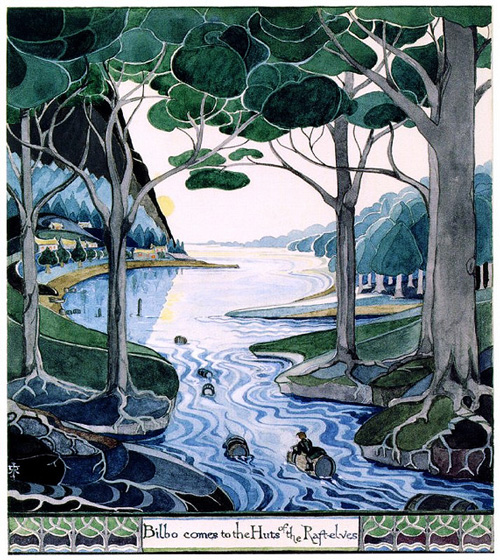 Thérèse Raquin by Émile Zola
Thérèse Raquin by Émile ZolaMy rating: 2 of 5 stars
Q: What do you get when you cross Macbeth with Madame Bovary?
A: Thérèse Raquin
Zola's chef-d'œuvre isn't a pleasant read; then again, with any novel that (quote the blurb) explores the "darkest aspects of human existence," fair doses of morbidness and enormity are expected.
Abandoned by her father and left motherless at an early age, Thérèse Raquin's spends her childhood under the oppressive custody of her aunt, the haberdasher Madame Raquin, and in the same sickly bed as her frail cousin, Camille. Stifling her two children in her overbearing clutches and loving her son all the more for his weakness, Madame Raquin is determined to never lose Thérèse or Camille and decides to marry them. The two - Camille, in his "sickly languor and his saintly, self-centered calm" and Thérèse with her "mild indifference, [...] terrifying in her impassivity" wordlessly accept the future their aunt has drafted for them. Yet when the family moves to Paris and settles in the "acrid dampness" of Passage du Point Neuf, Thérèse is introduced to Laurent, Camille's colleague, and the two plunge into the "grim throes of adultery." Laurent entered it originally only to satisfy the appetites of his "bohemian existence" and find a woman who would "cost him nothing;" Thérèse, struck by the sudden arrival of "a real man," tired of putting up with a husband "shivering with fever" and resentful of the sickly home in which she had been kept in all her life, uses the affair as an outlet to unleash "passion dormant" within her.
Yet as the affair continues, both are unable to overcome the insatiable nature of their intimacy. The bulwark to their attachment suddenly reveals itself in the feeble, puny form of ... Camille. So, out of a wild, impetuous desire to cement their relationship, the two commit the crime that casts them into the anguish of a "desolate, intolerable, existence:" MURDER.
They are henceforth titled by Zola as "the two murderers" and between them, where 'love' should have flourished instead stems "an affinity of blood and lust." And the "terrifying disease" they contradict, "a sort of hysteria of murder,” drives them to hallucinations, abuse and - eventually - suicide.
Hence the Macbeth//Madame Bovary parallel.
If this novel were a proverb, it would probably be: "be careful of what you wish for." Indeed, drowning Camille did not give Laurent the idle life he desired or the freedom for romance he had envisioned. Moreover, after the repercussions of murder give him the "astonishing sensibility" he lacked before as an artist, he destroys his work because all the portraits he paints, although brimming with potential, manifest in each line and figure the contorted figures of the dead Camille.
In fact, everything the novel's characters hope to achieve arrives at the opposite effect. There is an overarching theme of karma. Camille secretly hoped for one of his colleagues to die so that he could take his post - he dies instead. Laurent, greedy for a life of gluttony and idleness, orchestrates a murder that haunts him forever. Madame Raquin, out of selfishness and an urge for self-preservation, encourages Laurent and Thérèse's marriage yet unwittingly bestows her life's savings to her murderers (at least she got her 'revenge.' Perhaps the only one in the novel who really did). The novel is poisoned by disparities. Elements such as blood and lust, meant to be sitting at the opposite ends of a table, find themselves sharing the same seat instead. The characters in the novel show their ugliest sides. Even Madame Raquin, after learning of her children's treachery ("my child was killed by my children"), loses faith in God and takes pleasure in the horrifying hobby of watching Laurent and Thérèse slowly but surely kill themselves.
Moreover, there is the theme of encasement. Whether it is exhibited in the way Thérèse has an "immense capacity for calm that hid[es] violent fits of passion," the morbid way in which Laurent locks himself in his studio out of fear of an imaginatined spectre, or the effing chilling manner in which the paralysed Madame Raquin foments her inner hatred, everything - from people to emotions - are entombed. There is an unsettling parallel between 1) Thérèse complaining that her aunt "buried [...her] alive in this vile shop" and 2) being “seized with hallucinations, [...thinking that] she was buried in some vault together with a lot of puppet-like corpses which nodded their heads and moved their legs and arms when you pulled the strings.”
So morbid, and to think that I actually read the morgue descriptions over breakfast.
The whole novel is founded on sickliness, disease. There is Camille, the physically weak, and then there is the affair between Laurent and Thérèse, equally feverish in its short-lived ardour. The "mean, soiled shadows" of Passage du Point-Neuf do not contribute to any sort of convalescence, either.
So this is not a novel you would take with you to read on the glowing beaches of Hawaii or when eager for a zen weekend. And the parts of the novel sort of falls int 'etc. mode,' where the reader is treated to extended (and to great effect) details of Laurent and Thérèse's suffering and insanity.
Yet we watch them descend into madness, plagued by fear. Perhaps not the same way François the cat does, eerily and silently, and definitely not the way Madame Raquin does towards the end of the novel ("a bright spark of joy glowed in her eyes when Laurent raised his broad hand against Thérèse's head"), but us readers observe nonetheless. And with each turned page, we are exposed to anguish, horror, madness... then with the speed of a "shaft of lightning," like their passion, it is all over.
View all my reviews






